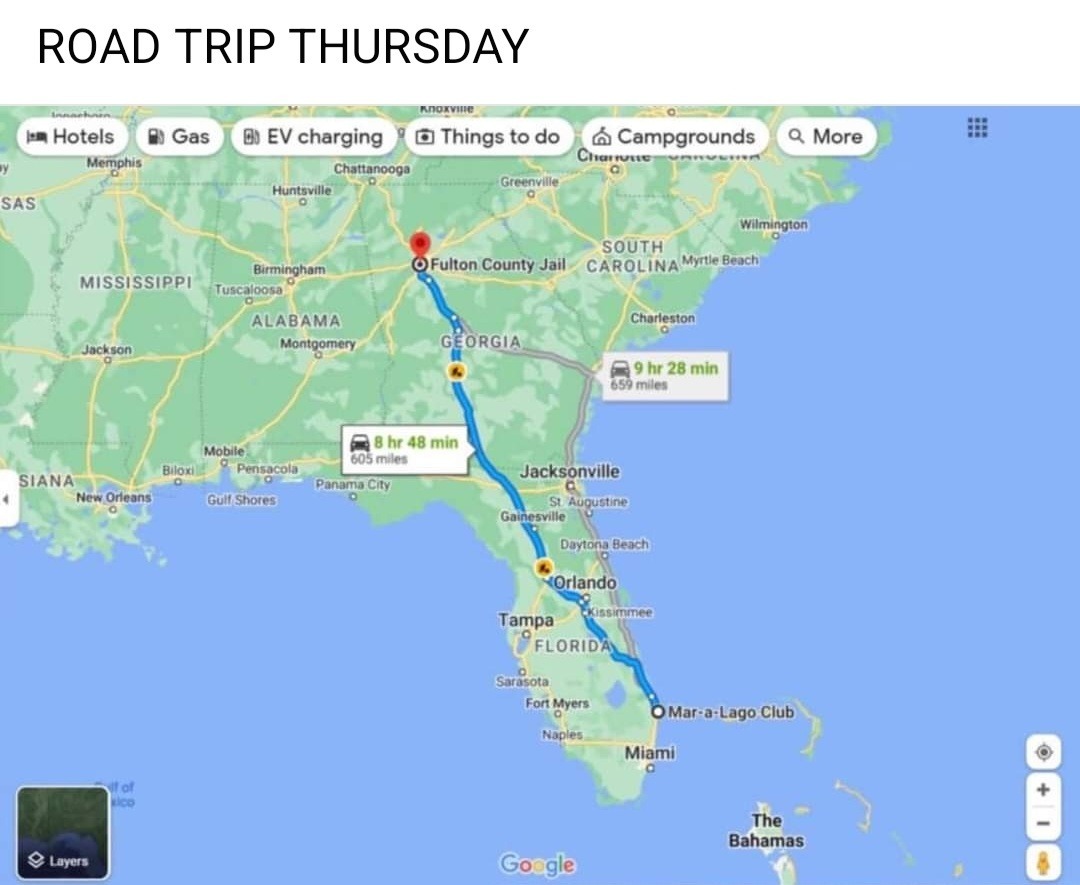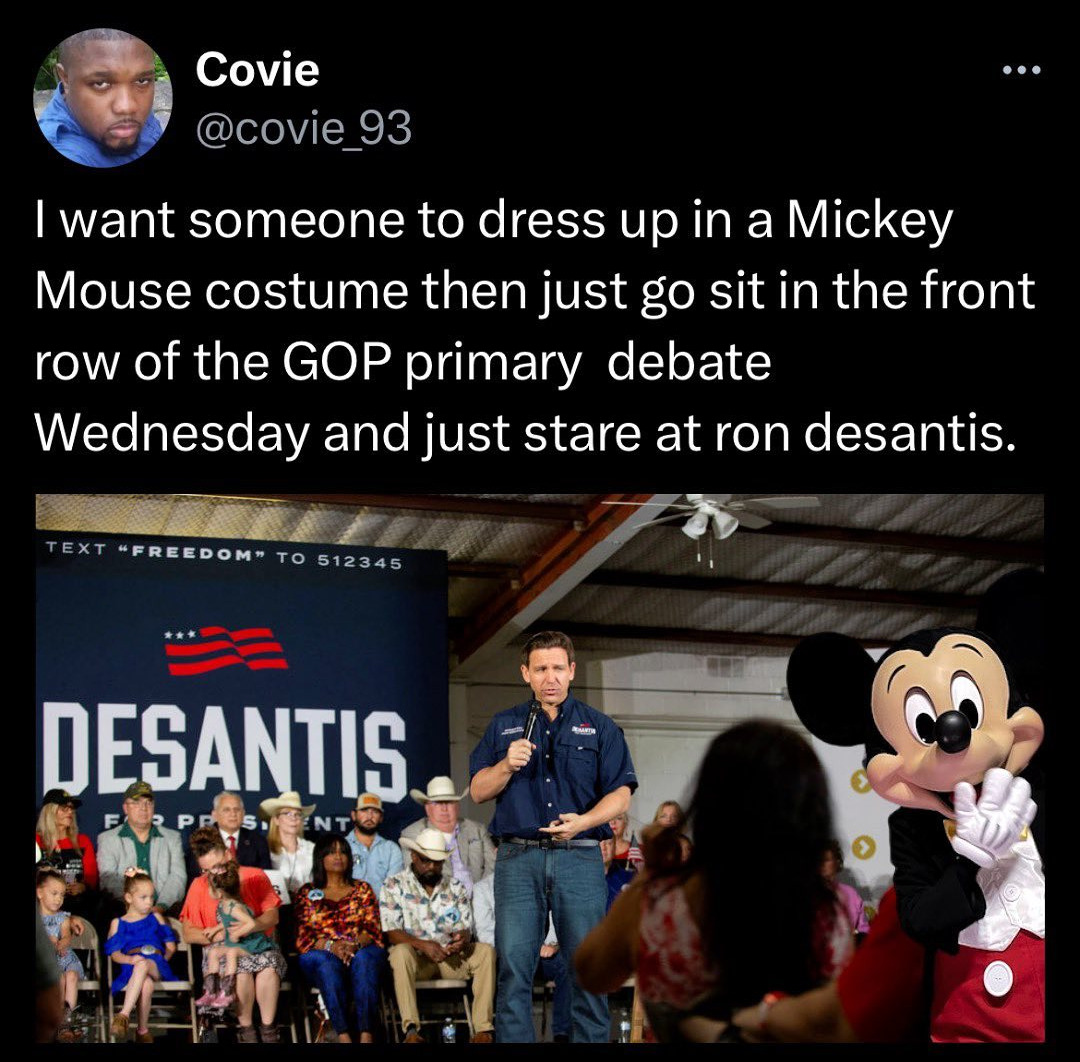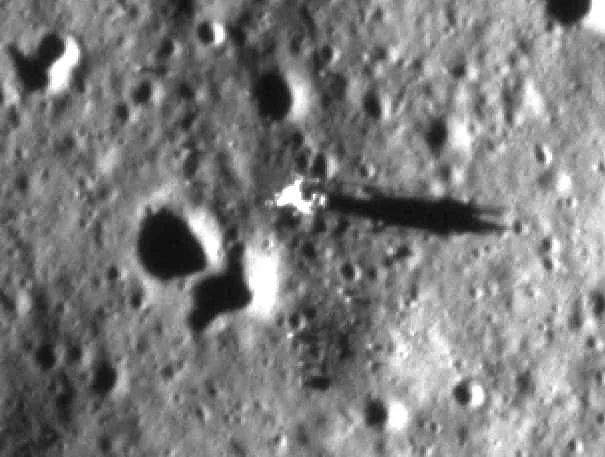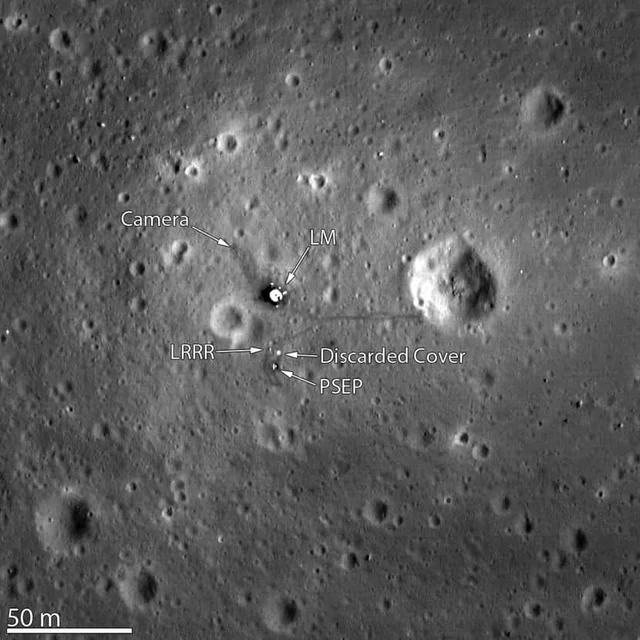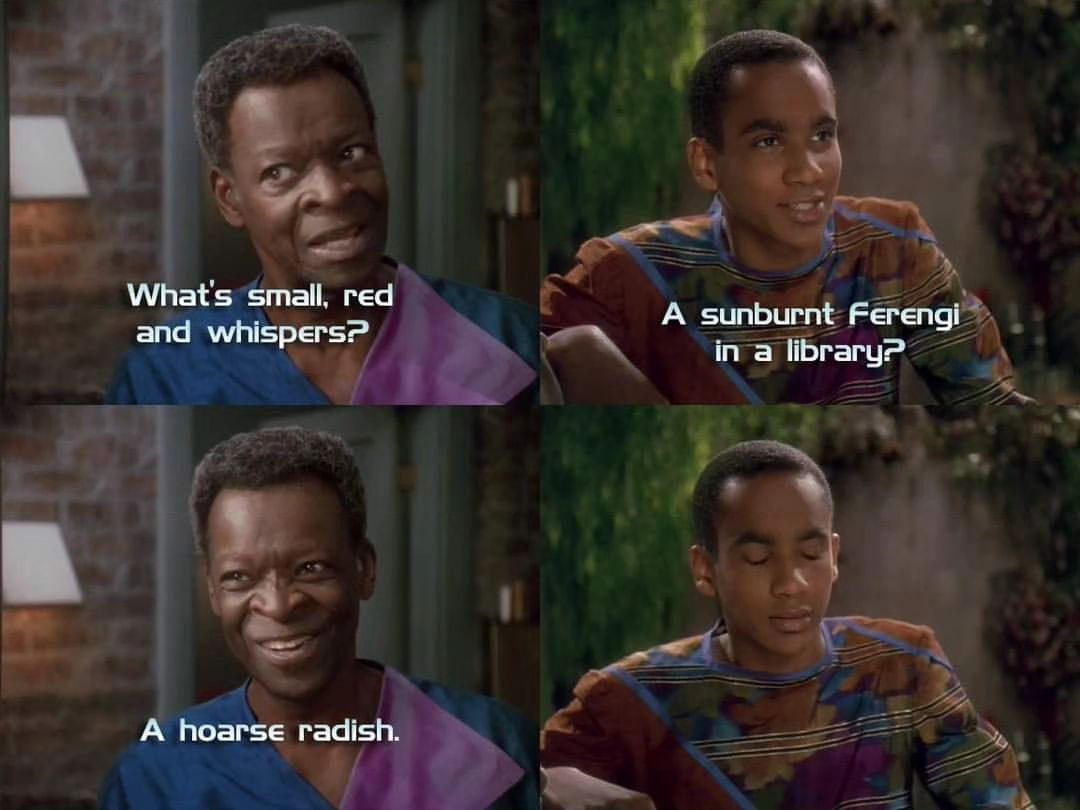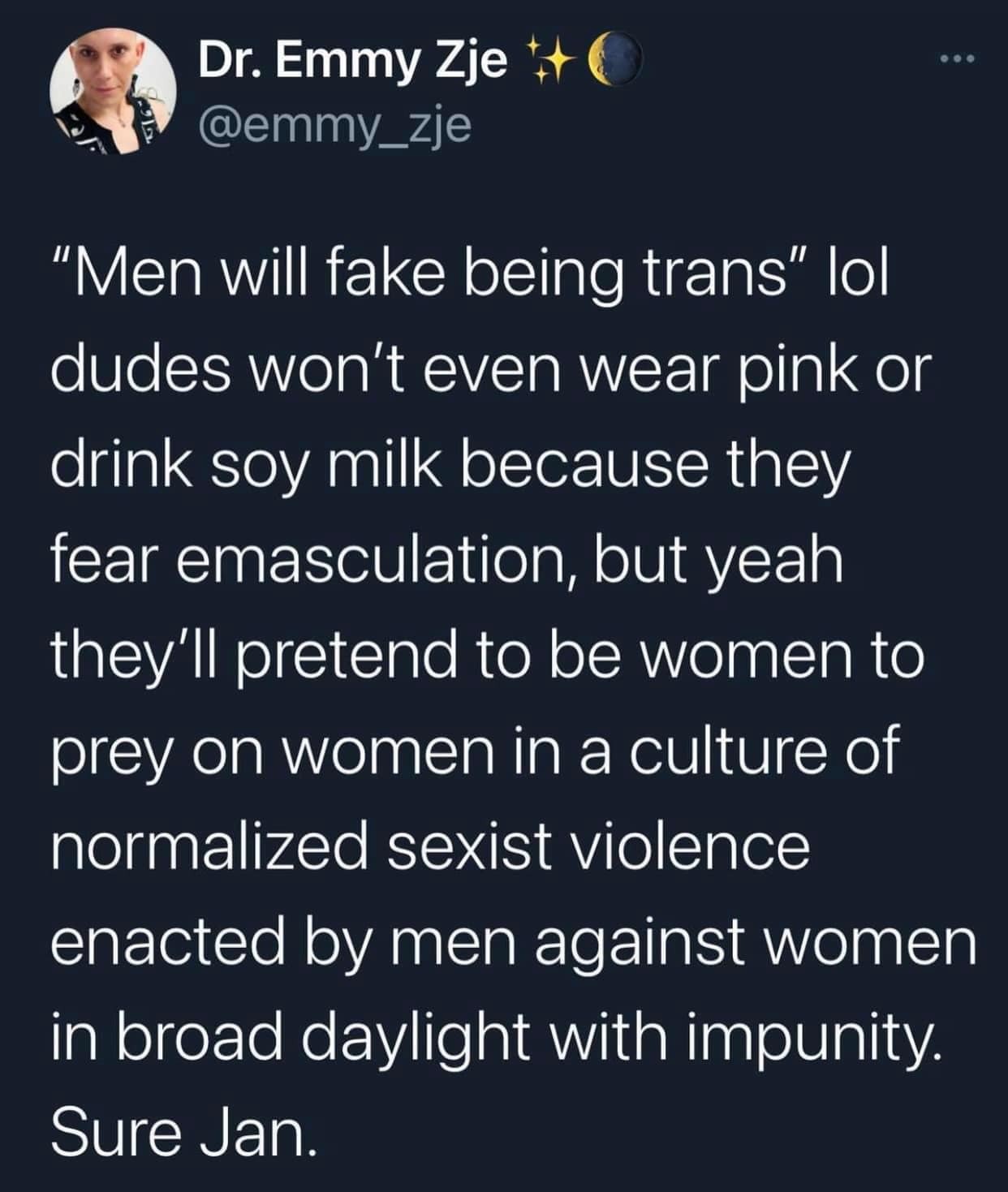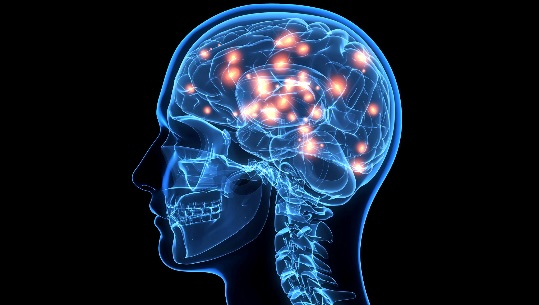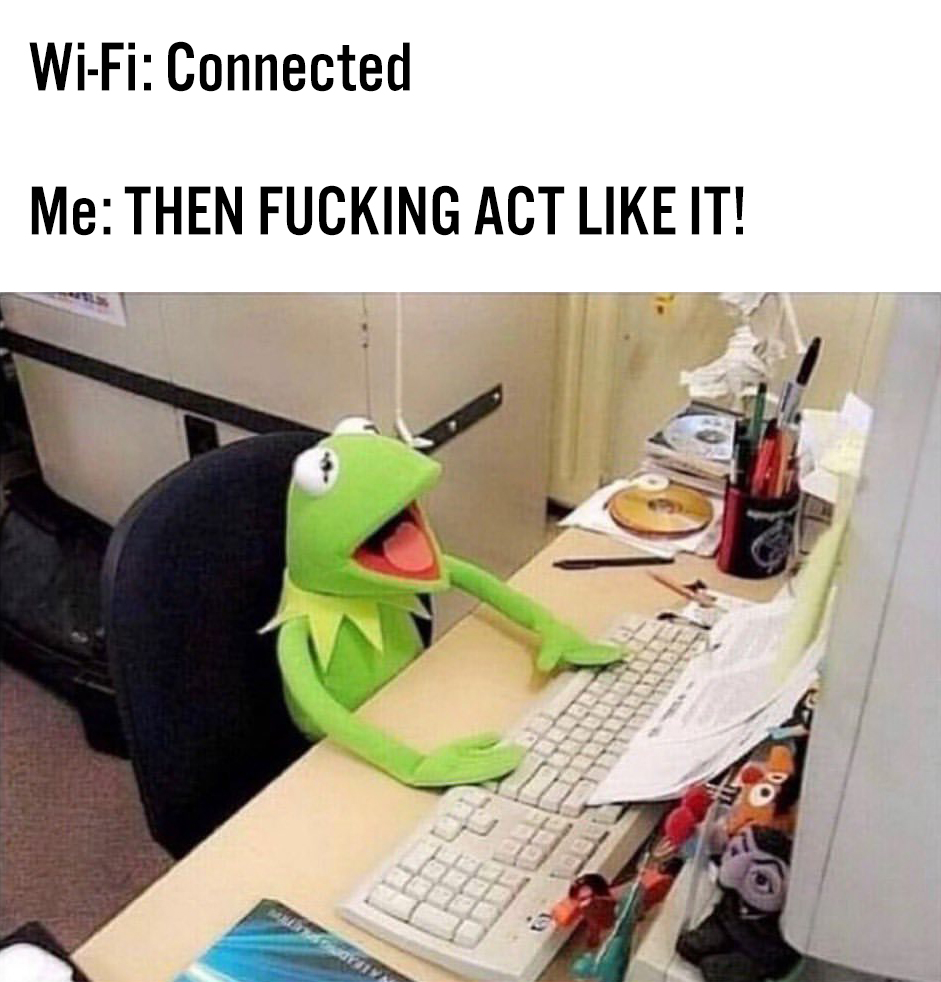Just Sayin' ?
They Really ARE Stupid, Aren't They?
365 Days of UNF: Day 237
Clown Show
? ? ?
365 Days of UNF: Day 236
"Fine Art Prints"
? ? ?
I Don't Know Who Made These, But I Approve
It's a Little Large For Only Two People (and Two Dogs)…
I. Cannot.
Yeah…
No Lies Detected
I Weep For Our Country
No Lies Detected
Another Work Rant
So if you want to just skip this one, feel free.
We're in the midst of replacing about 150 or so laptops and desktops as part of our five-year refresh project.
Yesterday I was to deliver and swap out a total of four devices at one of our remote offices. Three were straight desktop-for-desktop, and the fourth was a laptop-for-desktop exchange.
The desktop-to-desktop swaps went off without a hitch, but when I got to the last one, all I can say is it's a good thing I don't drink.
First of all, the user—who I'd emailed twice over the past weeks to remind him this was happening (and who never bothered responding)—was of course nowhere to be found when I arrived onsite.
His supervisor had to call him and tell him to get back to the office so this could be done.
For some reason his desktop was on—and fucking unlocked—so I took advantage of that and went ahead and ran the script that backed up all his data to the network. I went ahead and disconnected the desktop, connected the new docking station for the laptop to all the peripherals and waited for him to show up.
He seemed confused as to why this was happening and I pointed out that his desktop was end-of-life and needed to be replaced. I was told it was to be replaced with a laptop.
"What about this laptop?" he said, opening his overhead bin and pulling out a rugged type laptop that we normally issue to field workers (the one I was installing was a standard, office-variety).
He then said this was his laptop, but "I haven't been able to log into it for months," followed up by, "Will that new laptop work in the truck?"
I told him we had car chargers on order and we'd get one to him as soon as they arrived.
"No, I mean…will it fit in the cradle in the truck?"
I then realized that this whole thing had just gone south.
"No. It won't," I said.
The rugged laptop he had was still quite viable and not scheduled for replacement, so I figured it had just dropped off the domain. Checking, I saw that indeed, it was no longer present in Active Directory, so I created the object and then logged into that laptop so I could rejoin it to the domain.
Moving it first to a workgroup proved no problem.
But, after rebooting, and attempting to rejoin the domain the property sheet that you need to actually do that would come up, flash, and then immediately close.
Fuck. Me.
I'd fought with this type of issue in the past, and finally gave up and just reimaged the device at that time. I told him I would have to take it back to the main office and do the same for this one.
In the meantime I would get him set up on the new laptop, and then swap that for the rugged laptop when it was back to normal and working properly.
The next thing he asked was, "What about Billy?"
"Billy?" I asked. "Who's Billy?"
"He's the other guy who logs into this workstation."
What. The. Royal. Fuck?
Billy was the one who had been logged in when I backed up the data. So I didn't yet have this guy's data.
So I had to reconnect the old desktop, have this guy log in, back up his data….blah, blah, blah…disconnect it, reconnect the dock and laptop. And then restore his data—knowing full well that we'll have to go through this all over again after I got the rugged reimaged.
Why didn't I just reconnect the desktop? Because this was going to force him to bring the new laptop into the main office to exchange it for the old one. Yes, I'm a bitch that way.
So after he was all set up, we got hold of BIlly and created his profile on the new laptop as well.
Before this started, I figured it would take a couple hours, tops. As it was, it was noon by the time I'd finished, so I gathered everything after verify that all was well with the other workstations, and took a long lunch.
After lunch, I headed back to the office and began reimaging the old rugged laptop. Thankfully I now had both the guy's—and Billy's—passwords so when I was finished it was a simple matter to restore all their data again. The only thing I couldn't do is set up their O365, as that required two-factor verification. I told him that one of my colleagues could assist with that when he picked up the laptop as I would be working from home the next day.
Words of Encouragement
"Piglet?" said Pooh.
"Yes?" said Piglet.
"I'm scared," said Pooh.
For a moment, there was silence.
"Would you like to talk about it?" asked Piglet, when Pooh didn't appear to be saying anything further.
"I'm just so scared," blurted out Pooh.
"So anxious. Because I don't feel like things are getting any better. If anything, I feel like they might be getting worse. People are angry, because they're so scared, and they're turning on one another, and there seems to be no clear plan out of here, and I worry about my friends and the people I love, and I wish SO much that I could give them all a hug, and oh, Piglet! I am so scared, and I cannot tell you how much I wish it wasn't so."
Piglet was thoughtful, as he looked out at the blue of the skies, peeping between the branches of the trees in the Hundred Acre Wood, and listened to his friend.
"I'm here," he said, simply. "I hear you, Pooh. And I'm here."
For a moment, Pooh was perplexed.
"But… aren't you going to tell me not to be so silly? That I should stop getting myself into a state and pull myself together? That it's hard for everyone right now?"
"No," said Piglet, quite decisively. "No, I am very much not going to do any of those things."
"But-" said Pooh.
"I can't change the world right now," continued Piglet. "And I am not going to patronise you with platitudes about how everything will be okay, because I don't know that.
"What I can do, though, Pooh, is that I can make sure that you know that I am here. And that I will always be here, to listen; and to support you; and for you to know that you are heard.
"I can't make those Anxious Feelings go away, not really.
"But I can promise you that, all the time I have breath left in my body…you won't ever need to feel those Anxious Feelings alone."
And it was a strange thing, because even as Piglet said that, Pooh could feel some of those Anxious Feelings start to loosen their grip on him; could feel one or two of them start to slither away into the forest, cowed by his friend, who sat there stolidly next to him.
Pooh thought he had never been more grateful to have Piglet in his life.
[source]
365 Days of UNF: Day 235
Tuesday Back in the Office
365 Days of UNF: Day 234
? ? ?
Images Of Apollo 11 And 12 Sites Shot By India's ISRO Chandrayaan 2 Orbiter
You Walk In On This…
I Remember How Wonderful It Was…
We came so close to getting this right. And FAILED.
Trek Dad Joke
Do They Even Realize How Asinine They Sound?
Yes It Would!
Viruses Of The Mind
From Infidel753:
Viruses are the simplest of all living things. Indeed, it's questionable whether they should be considered "living" at all. A virus does not eat, breathe, digest, or perform any other of the organic functions of such true organisms as animals, plants, or bacteria. It consists of a string of DNA (or, in the case of retroviruses, RNA) within a protein shell. It cannot even reproduce without a host cell to parasitically exploit. Once inside the host cell, the virus DNA insinuates itself into the cell's own DNA, and diverts the functioning of the cell's internal machinery to produce copies of the virus. A virus is not so much a living thing as a packet of pure information—including instructions for replicating itself, and for modifying the behavior of the host organism in ways which will spread the virus (coughing, sneezing, etc).
Computer "viruses" work in much the same way and are thus aptly named. A computer virus is not even a material object but a series of electronic codes—again, it is a packet of pure information, usually including instructions which force the host computer to create new copies of the virus and spread them to other computers, just as a conventional virus uses a living host cell.
DNA and the systems which transcribe it, and electronic computers, are both information-processing systems. Viruses are parasites, entities composed of information rather than flesh and blood, which exploit such systems. As with conventional parasitism, this process usually inflicts substantial harmful effects upon the host cell or host computer, whose internal systems are perverted away from their normal functions to serve the aim of virus replication and spread.
The human mind is also an information-processing system. And it too has its viruses.
Consider religion, especially proselytizing religion. When this virus infects a human mind, it perverts the workings of that mind away from its normal function as part of that human's system for maintaining a happy, satisfying life. Healthy sexual feelings are re-interpreted as "sin". Irrational beliefs and bizarre, self-sacrificing behavior develop as the instructions from the invading ideological virus override natural mental processes. Like a cell which ruins itself by creating countless copies of the virus that infected it, and spreading them to other cells, the human whose mind is "infected" with a proselytizing religion often becomes fanatically dedicated to spreading the infection to others, even at the expense of his own safety and well-being. He becomes a host, a toolfor the information parasite, serving the purpose of its spread rather than the advancement of his own natural desires.
Several such mind-viruses—Christianity, Islam, fascism, Marxism—have evolved and spread successfully. Some human minds afflicted with these information parasites develop only mild cases (natural immunity due to better education or higher intelligence, perhaps), while others soon progress to the full-blown "fanatic" stage in which the virus is most effectively spread.
A broad education, including knowledge of science and critical thinking and exposure to a wide range of ideas, is the best "vaccine" we have against such mental viruses. Another defense is social environments hostile to their spread — the equivalent of public sanitation, which discourages the spread of conventional diseases. In this case, the protective social environment is one of cultural pluralism. Exposure to a wide range of cultures and ideas tends to render a human mind less susceptible to being completely taken over by any single idea (even if the variegated idea systems are all religious ones, the effect can still work). This does not mean that multiple cultures must be physically present. Japan is very mono-cultural by Western standards, but its people are constantly exposed to other cultures via the media, film and TV, the internet, etc.
Over the last couple of centuries, improved hygiene, vaccines, and other medical innovations have massively reduced the threat posed by infectious disease — to the point where diseases like AIDS or covid, which probably would have passed literally unnoticed any time before 1800, now register to us as major threats because the epidemic diseases that once routinely killed 10% to 20% of whole populations at a time are mostly under control or even effectively extinct. Rising levels of religious non-belief in Europe, the US, Latin America, and even the Middle East show that we're making similar progress against mind-viruses. It is still hard to imagine a world without religion, but a few generations ago it would have been hard to imagine a world without smallpox. We can do this.















